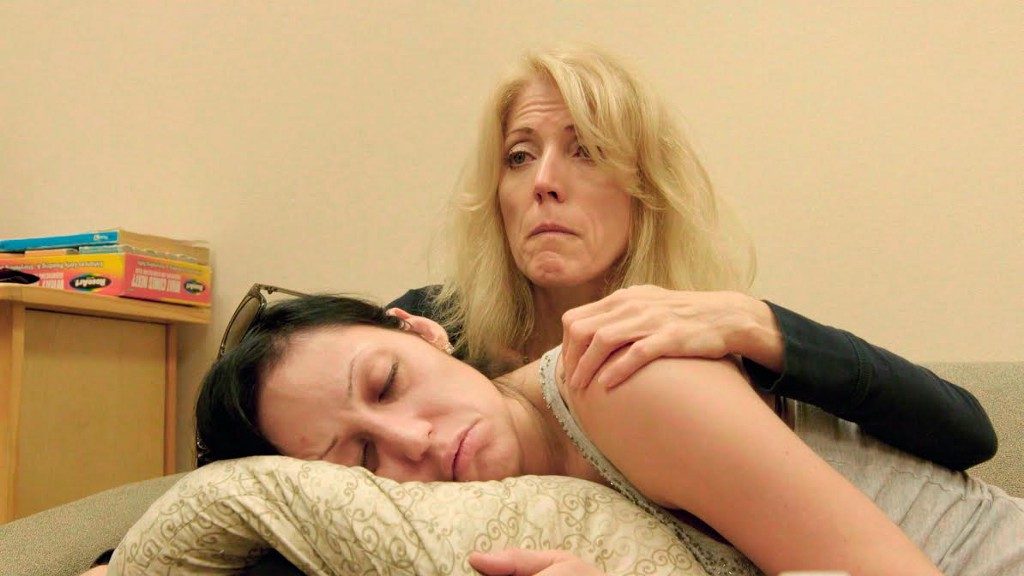Perri Peltz is a documentary filmmaker, journalist, and public health advocate whose latest film is the HBO documentary “Risky Drinking.” Peltz’s previous directing credits include “Remembering the Artist Robert De Niro, Sr.,” and “The Education of Dee Dee Ricks” for HBO. She is a director with The Conversation Cooperative for New York Times/Op-Docs.
“Warning: This Drug May Kill You” will premiere at the 2017 Tribeca Film Festival on April 27 and on HBO on May 1.
W&H: Describe the film for us in your own words.
PP: The United States is in the midst of the worst drug crisis in its history. The numbers say it all — 91 people die a day. I think most people know a bit about the opioid epidemic, but too often they don’t know what the epidemic looks like. They don’t know that anyone who is prescribed opioids for pain can become an unwitting victim. The film looks at the victims of this crisis
W&H: What drew you to this story?
PP: My background is in public health so I tend to gravitate toward health stories. I am also particularly interested in addiction. I was curious how we wound up in the midst of this terrible drug crisis — a crisis that has its roots in our own medical system. It seemed like a case of friendly fire.
W&H: What do you want people to think about when they are leaving the theater?
PP: Too often we try to protect ourselves and our loved ones by dismissing addiction as something that happens to other people — and when it comes to the opioid epidemic, that kind of thinking is wrong and potentially deadly. I want people to see that it can happen to anyone, and we have to be aware of the medications our loved ones are being prescribed.
W&H: What was the biggest challenge in making the film?
PP: Addiction is highly stigmatized. The biggest challenge was finding people who were willing to be open about addiction and share their stories.
W&H: How did you get your film funded? Share some insights into how you got the film made.
PP: This film was initiated by HBO. It was Sheila Nevins’ idea to understand why so many young people were overdosing and dying. This was before President Obama’s State of the Union address where he first spoke about opioids and the topic started to get more traction.
W&H: What does it mean for you to have your film play at Tribeca?
PP: I have been associated with the film festival since its first year and have had the privilege of watching it evolve into a wonderful and important festival. We are thrilled to be a part of Tribeca. New York is my hometown, so that makes it particularly meaningful!
W&H: What’s the best and worst advice you’ve received?
PP: The best advice: Trust your characters
The worst advice didn’t happen with this film, but I was once told to cut my losses before we started editing. We had shot for two years, we didn’t think we had the material, and we were told to pack it up.
W&H: What advice do you have for other female directors?
PP: Be tenacious. I come from television news where we would turn around stories in a day. A week would have been a luxury. I have been struck and at times frustrated about the amount of time it takes to tell a story in documentary. My best advice is to hang in there, trust the process, and enjoy the time to be creative and wait the story out.
W&H: Name your favorite woman-directed film and why.
PP: Sharmeen Obaid-Chinoy and Geeta Gandbhir “A Journey of a Thousand Miles: Peacekeepers.” Okay, I’ll admit that I was an exec producer on this. But Sharmeen and Geeta are two favorites and “Peacekeepers” is a kick-ass story about Muslim women. Docs are, for good reason, often about difficult and depressing topics. “Peacekeepers” is for the most part happy and inspiring — and fun to watch!
W&H: There have been significant conversations over the last couple of years about increasing the amount of opportunities for women directors yet the numbers have not increased. Are you optimistic about the possibilities for change? Share any thoughts you might have
PP: I am optimistic by nature. I think the numbers will follow. Change is slow, but change often follows awareness and I think people are finally aware about the directing inequities.







